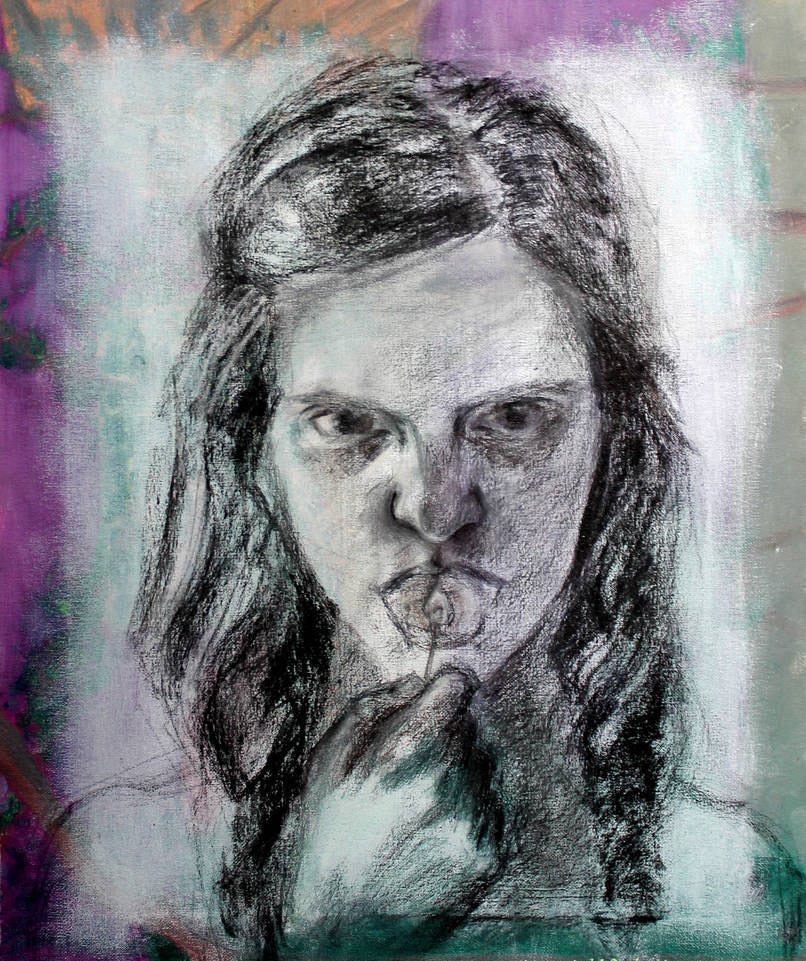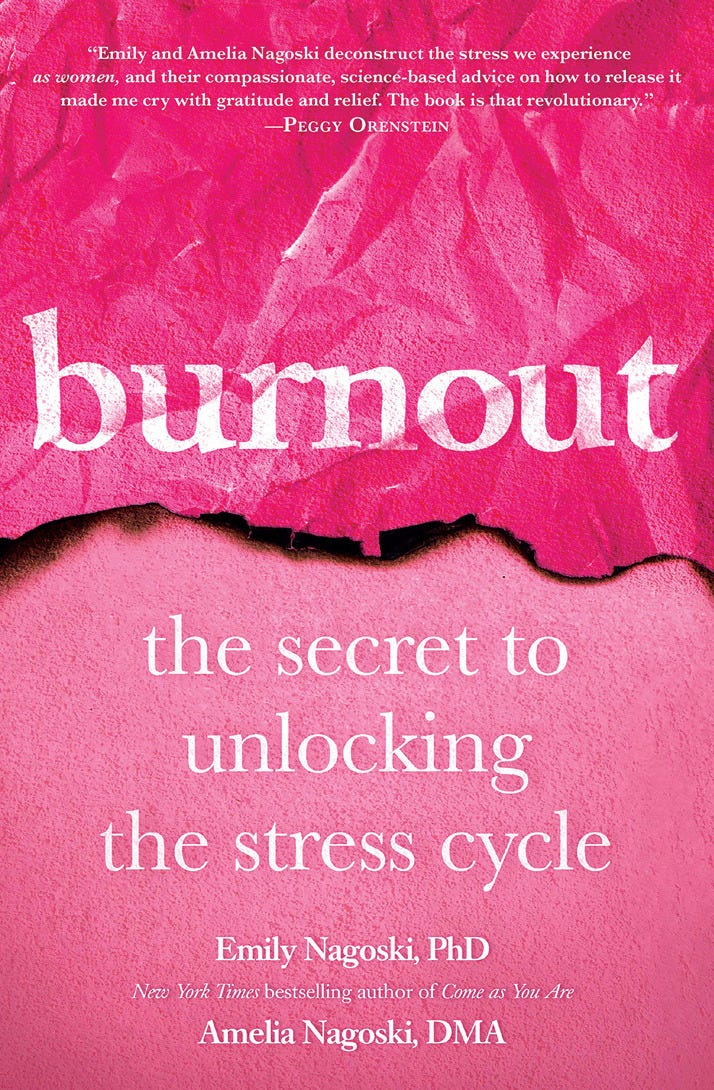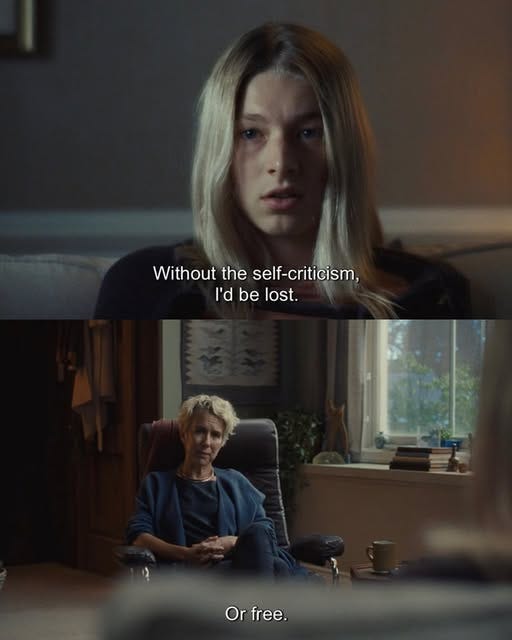Quemazón / Burnout
Poemas y citas en torno a mi estado de quemazón [suena a nombre de un territorio, je]. / Poems and quotes around my state of burnout [sounds like a place's name, ha].
[English version below.]
Hola, mis líquenes.
Si tenéis problemas para ver este newsletter con sus imágenes y todo podéis abrirlo también aquí.
Bienvenidxs a una entrega del newsletter que va un poco en la línea de esta otra:
Ry Shelley, flores de aciano y bellotas / Ry Shelley, Cornflowers and Acorns
Hace poco fue el aniversario de la muerte de Mary Shelley— en concreto el día 1 de febrero de 2021 marcó el 175º aniversario de su muerte. Hoy os quiero hablar de ella, y sobre todo de la importancia que ha tenido (¿y tendrá?) Frankenstein en mi vida artística.
Con esto quiero decir, para quien no estuviera suscritx allá por 2021 (hola, por cierto), que esta entrega va a ser una reflexión en torno a un tema específico, con muchas citas, en lugar de una puesta al día de mis andanzas artísticas-literarias, que es el formato más habitual. Podría referirme a que es otra entrega monográfica sobre Frankenstein, pero no (¿por ahora?).

Hace unos diez años de este autorretrato. Me he acordado de que existía cuando he empezado a pensar en escribir aquí sobre el burnout. Nunca estoy segura de cómo se traduciría burnout. Según wordreference.com sería…
[En el entorno laboral] Síndrome de desgaste profesional.
Síndrome del trabajador quemado.
Síndrome del quemado.
[En electricidad] Sobrecalentamiento, recalentamiento.
El primer grupo plantea varias incógnitas: ¿hay que ser un trabajador para sufrirlo?, ¿qué tipo de trabajador?, ¿cuentan lxs estudiantes?, ¿cuenta quien no recibe remuneración a cambio de su trabajo? Y el segundo grupo, aunque a priori parezca más alejado de mi experiencia, me satisface más como traducción. No es necesario ser un trabajador en ninguno de los sentidos para experimentarlo, y desde luego se siente como un sobrecalentamiento cerebral… o quemazón.
Me gusta usar quemazón para describir mi estado mental. Podría decir que estoy quemada, pero no me termina de satisfacer. Además, ¿cómo la convertiría en sustantivo? Así que empecé a usar quemazón. Tengo quemazón. Uno de los síntomas sería, en mi caso particular, escribir poemas al respecto [acabo de hacer esta traducción, pero podéis encontrar la versión original en la sesión en inglés del newsletter].
restlessness: descanso, falta de
hace cuatro años escribí mis primeros versos / uno de ellos desasosiego: descanso, falta de1 / aún sigo sentada / sin descanso / aún sentada / cuatro años de no aprender el descanso / no tanto descansando como pueda parecer / no tanto descansando como pudriéndome / no tanto pudriéndome como ardiendo / me siento / caigo / hacia adentro / abajo / aún el descanso es sólo un concepto / aún el cansancio me alcanza / ardo / no termino / llamas que no dan paso a cenizas / camino encendiendo los pasillos / aún sin ver ni ser vista / gris más oscuro de niña desasosegada / antigua / aún sin recargar / no ahora / nunca consumiéndome / aún sin llegar / a revivirme / nunca quieta y feliz por ello / nunca al día / nunca lista
quizás la alternativa es sencilla / de encontrar pero / fuera de foco o nunca / del todo en la misma habitación que mi deseo / la alternativa sería dejar que el suave animal de mi cuerpo ame / lo que ama2 / dejar que el amor se enfoque / o se deje tocar o se acerque al mismo vecindario siquiera / el amor consumiría / la lucha y el antojo / de control / el amor reconoce el caos como parpadeo / chispa de algo que no puede estar más lejos del esfuerzo / este suave animal pide un lugar / donde tumbarse no como ensayo de la muerte sino / como cuidado / el descanso tan lejos que parece el fin / de la vida / de la apreciación / de la utilidad / del capital / de la contribución / el amor pide mirar el fuego hasta que no quede nada más / en la pira / me dice que pasará y sanará y terminará / pero nunca me explica cómo.
Volviendo a leer este poema me he acordado de varias citas de este libro que acabo de leer (también está disponible traducido, pero como lo he leído en inglés aquí os dejo mi propia traducción de varios fragmentos).
¿Acaso el dolor o la enfermedad te hacen más fuerte? No. ¿Acaso el sufrimiento forja el carácter? No. Sólo te deja más vulnerable a sufrir más dolor. Lo que te hace más fuerte es lo que pasa después de sobrevivir a aquello que no te mata.
Lo que te hace más fuerte es el descanso.
El descanso es, simplemente, cuando dejas de usar una parte de ti que está agotada, cansada, dañada, o inflamada, para darle la oportunidad de reponerse.
Vaya, vaya. VAYA.

Otro poema reciente sobre/en torno a este tema (también originalmente escrito en inglés, y lo podéis leer en la sección inglesa de este newsletter):
Autorretrato de la poeta como barathrum
a partir de las palabras favoritas de Forthright
Un abismo, una persona insaciable3, el tipo de persona cuya hambre mordisquea los límites de su capacidad para más—conocimiento, estrellas, vida, ser reconocida. ¡Mira! Trágate mi oscuridad y no te sacies nunca, por favor. Si tus ojos están ahí eso debe ser porque los míos también, así que mírame—mira tu mirada a través de la mía, alimenta y aliméntate, y engulle la singularidad cada vez más densa entre mis cuerdas vocales, entre mi índice, mi pulgar y mi dedo corazón—donde no estás mirando todavía. Mis bocas están abiertas—mira.

Otra cita del libro de las hermanas Nagoski:
Pero a algunas de nosotras, una loca dura y tóxica [no me encanta esta metáfora, pero básicamente son nuestros pensamientos más auto-críticos personificados] nos dice que no merecemos tener menos estrés o estar de mejor humor. Nos dice que está bien que suframos; no nos merecemos la bondad ni la compasión ni ser más fuertes. Así que nos castigará para siempre, no importa lo que consigamos.
Esta dinámica no es sólo auto-crítica, es auto-persecución.

Y ahora podemos cerrar con la cita de las Nagoski que me dejó, y perdonen la expresión, con el culo torcido:
Cuando alguien con depresión intenta auto-apaciguarse, su cerebro activa el modo contra-amenazas. De hecho, el miedo a la compasión hacia una misma está conectado con el miedo a la compasión de otrxs. Eso quiere decir que en algún lugar en su interior, cree que si está aislada, eso es bueno; el aislamiento protege a lxs demás de su auténtica maldad integral. Y si sufre, pues mejor; eso evita que se haga más fuerte, lo cual puede llevarle a tener un poder que será inevitablemente incapaz de usar de forma efectiva, o incluso abusará de ese poder.
Hasta ahí por hoy. ¿Qué os parecen los poemas? ¿Y qué opinión tenéis de la quemazón? Yo estoy intentando ejercitar otros músculos para dejar descansar y repararse a los que están quemados (quiero decir que estoy haciendo cosas diferentes, usando otras partes del cerebro), y en general me lo estoy tomando todo con una lentitud y una calma muy poco características de mí. Es raro, pero creo que necesario.
Gracias
a mis lectorxs, y especiales agradecimientos a mis Patrons: Nacho (mi Patrón no-oficial/Patrón de las Artes, y aquí también puedo incluir a Olga), Rufi, Jorge, Ariadna, Manuel, Víctor, Lary, Lucía, Cat DuFoe, Ama Erre, Sargento Patata, Katia, y Mudgie. Sois lo más <3.
Spoilers: la próxima entrega será sobre mis lecturas del 2024
(ya lo hice el año pasado, y creo que se va a convertir en una bonita tradición).
💌 ¿No te has suscrito todavía a este newsletter?
🎧 También podéis suscribiros y escuchar la versión podcast de luto-de-hormigas en anchor/spotify for podcasters, spotify, o youtube.
📁 ¿Quieres echarle un ojo a los newsletters que ya he enviado?
🍑 ¿Te gusta lo que cuento y crees que le podría gustar a alguien que te gusta? Si a tu crush le gusta leer y necesita recomendaciones nuevas, envíale esta entrega con mis poemas más recientemente publicados (y dile que se suscriba).
english version starting here
Hello, my lichens.
If you can’t read this properly or see the pictures you can go here.
Welcome to a strange new issue, this being very much in the same format as this other past issue:
Ry Shelley, flores de aciano y bellotas / Ry Shelley, Cornflowers and Acorns
Recently it was Mary Shelley's death anniversary— specifically, 1 February 2021 marks the 175th anniversary of her passing. Today I want to talk about her, and more specifically, about the impact that her Frankenstein had (and will have?) on my artistic life.
And I don’t mean this is another Frankenstein special (that could very well be in the future though), but an issue about a specific topic, with quotes aplenty, not really my usual literary-artistic update.

I drew that self-portrait more than ten years ago, and I thought about it while writing now about burnout. According to wordreference.com that would be…
burn out:
[~ (+ itself) + out)] to cease or stop functioning because something has been burned up or worn out: The rocket engine burned out. The firemen let the fire burn (itself) out.
[~ (+ oneself) + out] to become exhausted or uninterested through overwork: After twenty years at the same job, he had burned himself out and wanted a change.
If English is your first language this must sound absolutely reasonable, but since it’s not mine let me tell you how strange but fitting that sounds to me. I try to avoid including English words while talking or writing in Spanish, but this is a hard one to translate, so I usually end up saying Tengo quemazón instead of the more common and Spanglish Tengo burnout or even Estoy quemada. Hey, I have nothing against Spanglish, but I’m a language nerd and I think a lot about this stuff. In the Spanish definition the definition of work-induced burnout is more clearly linked to… standard work? It may lead you to think only remunerated workers can suffer from it, and I dare call bullshit on that.
One of my specific burnout symptoms is writing poems about it:
restlessness: rest, lack thereof
four years ago I wrote my first verses / one of them being restlessness: rest, lack thereof4 / still I sit down / still / unrested / yet sitting down / four years of not learning rest / not resting as much as it may look / not rest as much as rot / not rot as much as smolder / I sit / I fall / inward / down / still rest stays a concept / still exhaustion catches up / I burn / yet never stop / flames never give way to ash / I walk lighting up the hallways / yet unseeing and unseen / darkest gray of the restless child / ancient / still uncharged / not now / never fully burning out / still never / fully revived / never still and glad to be / never catching up / never ready
maybe the alternative is easy / to know but / out of focus or of grasp or not / truly ever in the same room as my want / the alternative would mean to let the soft animal of my body love / what it loves5 / to let love come into focus / or grasp or at least the same neighborhood / love would consume / the struggle and the crave / for control / love recognizes chaos as flickering / a spark of something that is so far from exertion / this soft animal asks where to / lie down not as rehearsal of dying but / as caring / rest so foreign it feels like the ending / of living / of appreciation / of usefulness / of capital / of contributing / love whispers to watch the fire until there’s nothing else / in the pyre / tells me it will pass and heal and stop / but never explains me how.
Transcribing this poem made me think of a few quotes from this book I just read:

Does injury or disease make you stronger? No. Does suffering alone build character? No. These things leave you more vulnerable to further injury. What makes you stronger is whatever happens to you after you survive the ting that didn’t kill you.
What makes you stronger is rest.
Rest is, quite simply, when you stop using a part of you that’s used up, worn out, damaged, or inflamed, so that it has a chance to renew itself.
Well, well. WELL.
Another poem around this topic:
Self-Portrait of the Poet as Barathrum
after Forthright’s Favorite Words
An abyss, an insatiable person6, the kind whose hunger eats at the edges of their capacity for more—knowledge, stars, living, being known. Here, look: I hold an eternity of want to be looked at and relished on. Look! Drink in my dark and never be sated, please. If your eyes are there that must mean I am too, so see me—watch your stare through mine, feed and feed on, and gulp down the singularity growing denser in-between my vocal cords, between my right index and thumb and middle finger—where you are not looking yet. My mouths are open—look.

Another quote from the Nagoskis:
But for some of us, a harsh, toxic madwoman [I don’t love this metaphor, but the authors use it as basically the personification of your most self-critical thoughts] is telling us we don’t deserve lower stress or improved mood. She says it’s right that we should suffer; we don’t deserve kindness or compassion or to grow mighty. And so she will punish us forever, no matter what we achieve.
This dynamic is not just self-criticism, it’s self-persecution.
Here’s one from a fiction piece, spot on still:

Ok, now we close this off with the quote from Burnout that hit me like a ton of bricks:
When people with depression try to be self-reassuring, their brains respond with threat activation. In fact, fear of compassion for self is linked to fear of compassion from others. That means that somewhere inside them, they believe that if they’re isolated, that’s good; isolation protects others from their real, core badness. And if they’re suffering, that’s good; it prevents them from growing mighty, which may lead to them having power that they would inevitably fail to use effectively, or might even abuse.
Ok, that’s all for today. What do you think about the poems? And about the burnout thing? I’m trying to exercise other muscles so the burnt ones can rest and heal (I’m doing other things), and taking everything with a slowness and calm that is so very uncharacteristic of me… But I think it’s necessary, so.
Thank you
to my esteemed readers, and extra-thankyous to my Patrons: Nacho (my non-official Patron, and here I can also include Olga), Rufi, Jorge, Ariadna, Manuel, Víctor, Lary, Lucía, Cat DuFoe, Ama Erre, Sargento Patata, Katia, and Mudgie. You’re the best <3.
Spoilers: next issue will be all about what I read in 2024
(I already shared it last year, and I think is bound to become a nice tradition).
💌 Haven’t you subscribed to this newsletter yet?
🎧 You can also listen to the podcast version on anchor/spotify for podcasters, spotify, or youtube.
📁 Would you like to take a peek into the previous issues?
🍑 Do you like what I have to say and you think someone you like might like it? Send them this past issue of ants-mourning with the last two poems I got published (and tell them to subscribe).
Es de mi poemario autoeditado Todo está vivo (disponible en digital aquí, o en físico si me lo pides por favor → miriam.navarro.prieto@gmail.com).
No tienes que ser buena.
No tienes que caminar de rodillas
cien kilómetros a través del desierto, arrepintiéndote.
Sólo tienes que dejar que el animal suave de tu cuerpo
ame lo que ama. […]
[Así empieza el poema Gansos salvajes (Wild Geese) de Mary Oliver, traducido aquí por Sara Torres.]
Cita directamente sacada de esta página: la lista de palabras curiosas favoritas de Forthright, persona detrás de phronistery.info. Conozco esta página por Neil Hilborn, y de hecho el poema lo escribí a partir de una de sus premisas.
From my self-published first poem collection, digital copies available here → Everything Is Alive.
You do not have to be good.
You do not have to walk on your knees
for a hundred miles through the desert, repenting.
You only have to let the soft animal of your body
love what it loves. […]
[That’s how Mary Oliver’s poem Wild Geese starts.]
Direct quote from this list of favorite words compiled by Forthright, author of the phronistery.info website.





